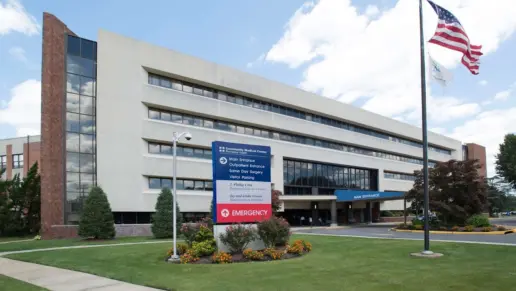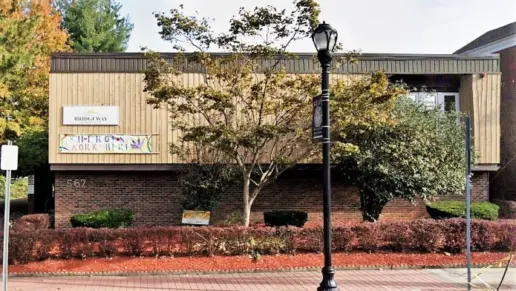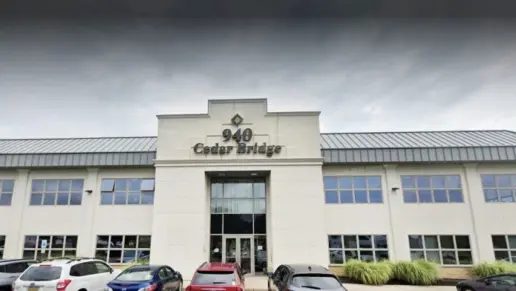About North Jersey Recovery Center
North Jersey Recovery Center is a private drug and alcohol addiction rehabilitation center in Fair Lawn, New Jersey. North Jersey Recovery Center treats adult clients with substance use disorder (SUD) by recognizing and healing the physical, mental, and spiritual harm it has caused. This is a clinical facility with luxury amenities.
New Jersey Recovery Center specializes in outpatient care in relaxed atmospheres. They have programs for alcohol, heroin, benzodiazepine, opiate, cocaine, and prescription medication addiction.
In an IOP program, clients live at home and visit the center for treatment three times a week, three hours per session. IOP is the highest level of outpatient care because it requires the most meetings. Clients can transition into IOP from an inpatient program or enter it directly following an assessment.
Clients in IOP meet with a team of clinicians to guide their care. Clients learn more about addiction while developing coping skills supporting sober living. Therapies at New Jersey Recovery Center occur in family, individual, and group settings and include cognitive behavioral therapy (CBT), dialectical behavioral therapy (DBT), and behavior modification therapy.
New Jersey Recovery Center’s outpatient program is a less intensive version of IOP services. The critical difference between the two programs is that the outpatient program meets less frequently and has a more flexible schedule. Both IOP and outpatient programs include case management services.
MAT is used to curb or eliminate cravings and other symptoms in treatment so they can better focus on recovery. MAT uses FDA approved drugs and is closely monitored to ensure client safety while they receive new medication.
A dual diagnosis is any mental health disorder alongside an addiction diagnosis. Clients may come to treatment with a known dual diagnosis, which may be uncovered during an assessment. Dual diagnosis treatment addresses the symptoms of both problems to reduce the risk of relapse significantly.
New Jersey Recovery Center operates sober living homes to benefit clients who are or have recently completed a treatment program. Each residence is a clean, substance free community based home where clients lead mostly independent lives while participating in groups, undergoing drug screenings, and following other rules as mandated by staff. Sober Living Homes act as a transitional step for clients who want additional support before returning to fully independent lives.
Rehab Score
Gallery
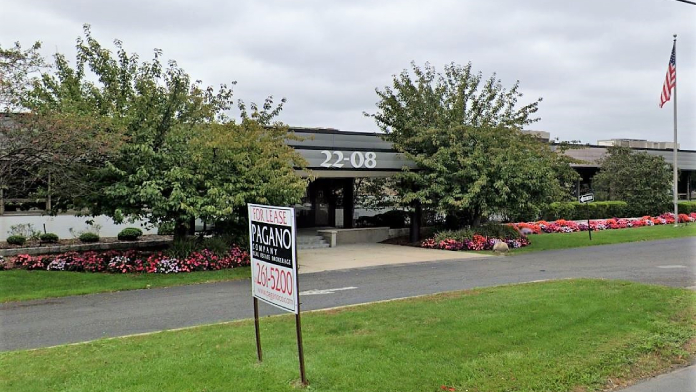
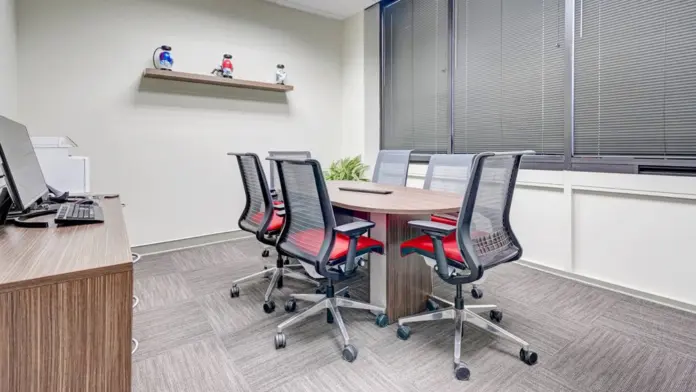
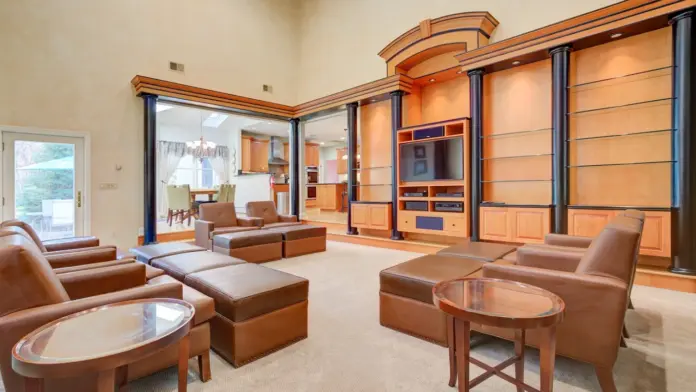
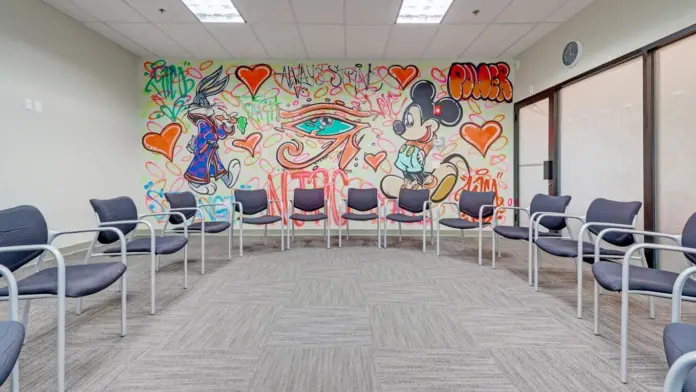
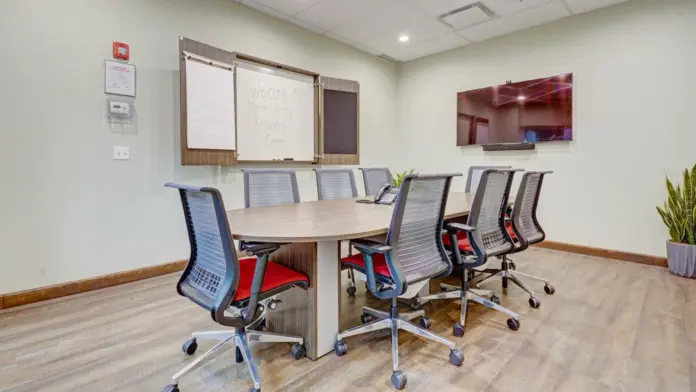
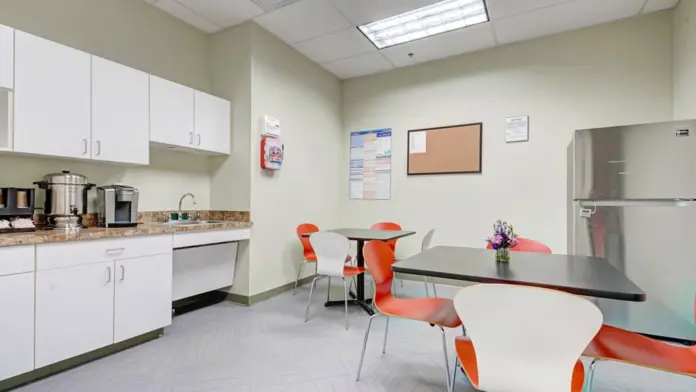
Location
Accepted Insurance




Other Forms of Payment
Private insurance refers to any kind of healthcare coverage that isn't from the state or federal government. This includes individual and family plans offered by an employer or purchased from the Insurance Marketplace. Every plan will have different requirements and out of pocket costs so be sure to get the full details before you start treatment.
Self-pay involves paying for treatment out of your own pocket. You can use savings or credit, get a personal loan, or receive help from family and friends to fund your treatment. If you don't have insurance or your insurance plan doesn't cover a specific program, self-pay can help ensure you still get the care you need.
Addiction Treatments
Levels of Care
Programs


Clinical Services
Cognitive behavioral therapy (CBT) in New Jersey typically follows a set structure of treatment. The therapist helps clients identify their life challenges and their thoughts surrounding those challenges. The client then learns to identify unhealthy thought patterns and reshape those into healthy patterns of thinking and behavior.
Dialectical means opposing. The premise of dialectical behavior therapy is to learn how two things that seem to be opposite can actually be true. You learn how to accept yourself while also making changes. The focus is on accepting your emotions and changing how you manage them.
Group therapy settings offer you a diverse perspective on addiction and recovery. People from a variety of backgrounds gather together to discuss their challenges and speak openly and in a nonjudgmental atmosphere. This enriches your experience and your understanding of addiction and recovery.
During individual therapy for drug addiction, patients receive a customized and tailored approach to understanding their unique circumstances and providing them with targeted interventions. These include coping skills, relapse prevention plans, and developing resilience, all of which are essential for long term recovery.
Family therapy sessions address addiction related conflicts and other issues between members of the family unit. By strengthening communication and coping skills, as well as creating a nurturing environment, the family can help support their loved one's recovery.
Accreditations

The Joint Commission, formerly known as JCAHO, is a nonprofit organization that accredits rehab organizations and programs. Founded in 1951, the Joint Commision's mission is to improve the quality of patient care and demonstrating the quality of patient care.
Joint Commission Accreditation: Yes

The National Association of Addiction Treatment Providers (NAATP) is a professional association that represents organizations in the field of addiction services. Founded in 1978, NAATP's mission is to advance addiction services and ensure that high-quality addiction treatment is available and accessible.
NAATP Member: Yes
Contact Information
22-08 NJ-208
Suite 2
Fair Lawn, NJ 07410











